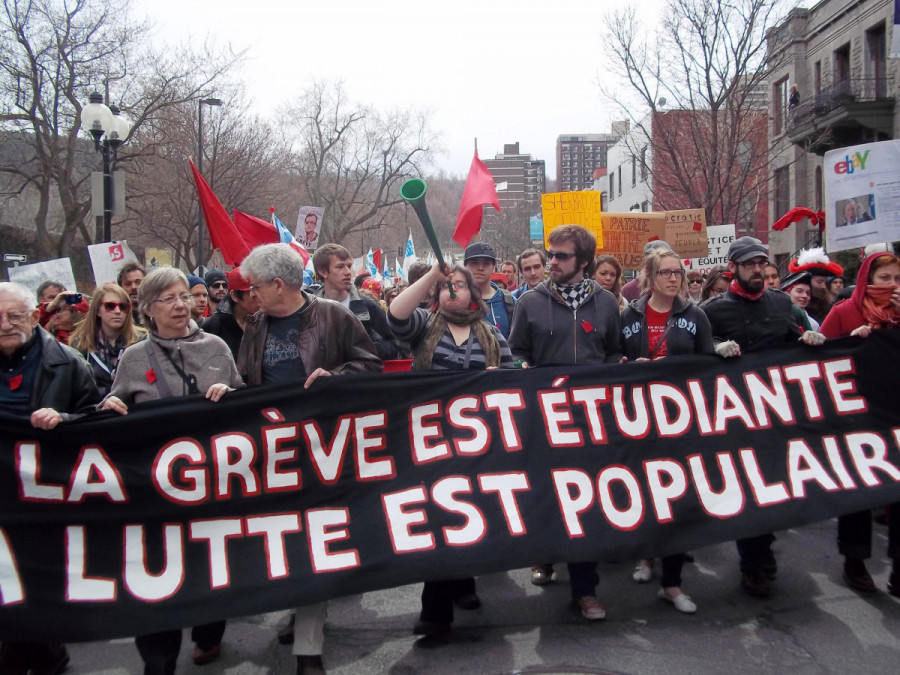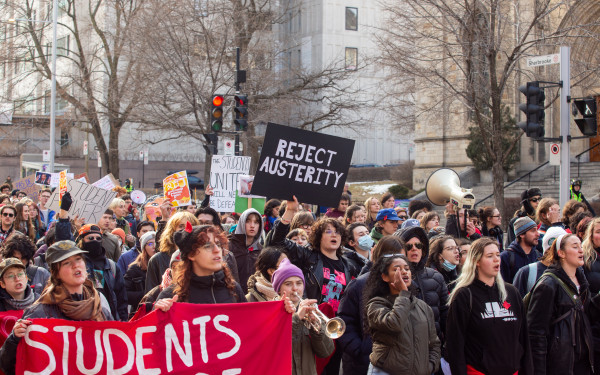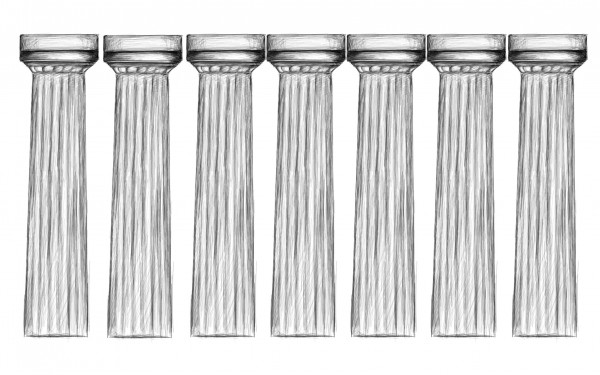Unity in Action
Student tuition strikes reveal the importance of collective action and hard pickets
Hard picketing, or primary picketing, plays a pivotal role in the efficacy of student strikes against academic injustices, such as tuition increases.
This form of protest involves physically blocking access to educational facilities and withholding academic submissions, creating a direct impact on the institution's operations.
Hard pickets serve as a powerful expression of collective action among students, ensuring that their demands cannot be easily dismissed by academic or governmental bodies.
The goal of hard picketing lies in its ability to promote a collective effort among students.
By physically preventing the normal flow of academic activities, hard pickets ensure that the collective action of students is felt directly by the institution going against the status quo or complacency in the current situation for international and out-of-province students.
This form of picketing also offers a layer of protection for students in order to avoid facing the brunt of the consequences from either the government or universities in response to the strike.
Hard pickets discourage individual students from splitting away from a collective action by offering those who are in the minority a degree of safety from the consequences of losing academic marks, or future disruption in their education.
This is why hard pickets are the most effective when striking nonsensical academic financial changes brought on by the government in order to pressure them for a response.
In contrast to soft picketing, which involves less direct methods such as distributing flyers without obstructing activities, hard picketing demands an all-in participation from the student body.
Another weak point is that hard pickets rely on the effectiveness of the unity and resolve of the participants.
With soft picketing, the success of the picket isn’t reliant on the inaction of all students involved. On the other hand, for hard picketing, if a handful of students break the picket line, by turning in assignments or showing up to class, it puts everyone who stood with the picket in danger. Such actions can expose all participants to the very consequences the strike aims to shield them from.
This requirement for unanimity reinforces the strength and seriousness of the student's stance, making it a better tool in negotiations with authorities.
The success of such strategies can be traced back to past student movements in Montreal’s student activism history.
The Quebec student strike of 2012 serves as a prime example, where widespread and persistent hard picketing eventually led to the government retracting proposed tuition hikes.
Historically, these protests were the longest-lasting student strikes in the province causing major disruptions.
With their numbers and this one-for-all mindset, students in 2012 were able to bring wide scale, wide visibility and awareness of their fight with the government. From garnering celebrity attention and public disruption like concerts of pots and pans, protesters took to the streets to protest Bill 78, a draconian law attempting to quell massive student protests that had taken over Quebec streets for more than 100 days.
These strikes eventually forced the government to backpedal, repeal the bill and pull back on the tuition increases.
Like the present-day strikes happening on campus, the 2012 student strikes also faced challenges with unity among participants. In some cases, various students against the strikes used court injunctions to break picket lines in front of classes.
Despite this vulnerability, hard pickets rely on the determination and cohesion of the protesting force; they have an exponentially harder weight when shaking the balance of power against the government.
Through strategic picketing and protests, we have the power to demand attention and incite change. Together, we can force the Coalition Avenir Québec to abandon their unjust tuition hikes disguised as language protection.
Join in this crucial fight to defend our rights and cancel these unfair tuition hikes based on right-wing nationalism under the guise of protecting the French language.
Let's make our voices heard loud and clear: we refuse to stand by as our futures are compromised.





_(1)_600_375_s_c1.png)

_600_375_s_c1.png)